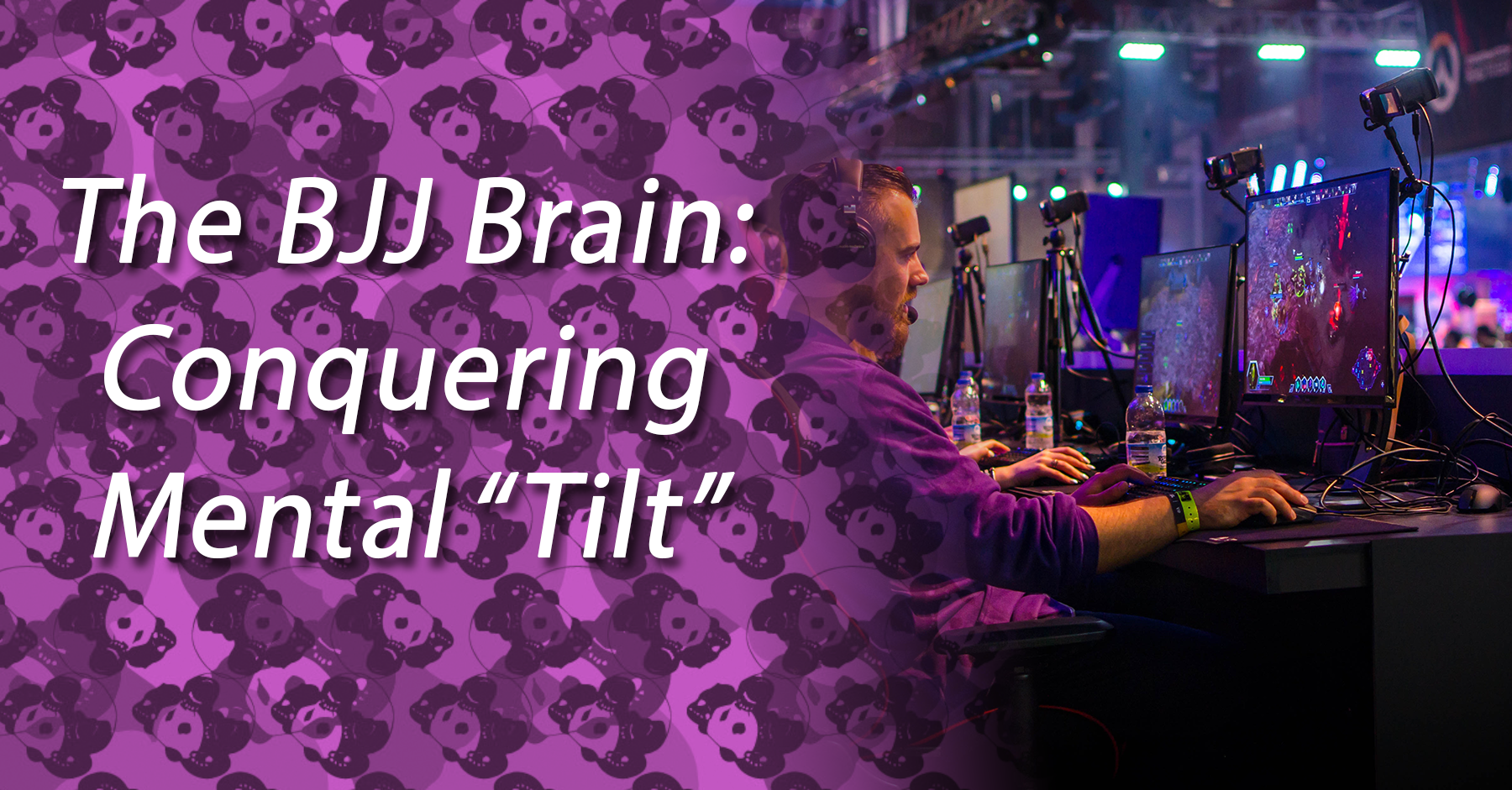
Are you “on tilt” when you compete?
For me, I learned the concept of being “tilted” or “on tilt” from esports like Starcraft or DOTA, but the idea actually originates in Poker. The idea is that if you make a mistake or hit a stroke of bad luck, it can disrupt you mentally. As you get more upset, you are more likely to make another mistake, and then another. Your emotions trigger a cascade of less-than-optimal choices that get progressively more extreme.
You lose control of the game, and one slip-up soon morphs into a death spiral.
I see this happen to jiu-jiteiros as well. When you get your guard passed or when you get swept, the temptation to mourn your loss is strong, especially if you were caught off guard or felt bullied. You might not do it verbally, but this is the moment where you take a second to yell an expletive when you should be using that time to mount a counter or to rebuild your defenses.
The time it takes to process an emotion like frustration or anger is like hitting the breaks in a car race. Your opponent is still driving forward, and that one inch of hesitation can be like a crack in a dam. As the pressure keeps coming and the race keeps going, that one inch can explode into a significant lead.
Emotions are difficult to manage under normal circumstances, and the context of a jiu-jitsu match only make that more challenging. You are passionate about the art, you are competitive, and you have to contend with more primal programming like basic survival instincts.
If getting tilted is a challenge for you, how do you fix that problem? Here is the advice I give to my students:
- Recognize when you are tilted. Part of solving tilt is realizing it is happening. Even though you might be too far gone to recover in that match, reviewing when and where you started to lose control can help you to prevent it in the future.
- Work on your conditioning. When you get your tired, your brain will quickly be distracted by how awful you feel, and your movements will be sluggish and uncoordinated. Not getting tired is one of the most straightforward ways to keep your brain clear and on task.
- Compete and roll as often as you can. The pressure of competition can start to tilt you before a match even begins. If you compete regularly, you will be accustomed to the environment and the process, which will make you more comfortable on the mat. If you can’t compete regularly, pursue difficult training partners at your gym.
- Isolate difficult positions. Deliberately put yourself in bad scenarios during training so that you can build your confidence in your ability to defend and escape. Your reaction to getting mounted should be “I know what to do here” instead of “oh God I am in so much trouble right now.”
- Drill counters and recounters. If you have a particular guard pass that you like, identify the most common counters and drill how you will recounter. If you apply this methodology throughout your game, a roadblock won’t be a frustration since you will already have the solution prepped and ready to go.
- Believe you can always win if you are technical enough. This one is more abstract, but this mindset is important for grappling. It may take a deeper dive into sports psychology for you to develop, but the short version is that every time you touch hands you should believe that if you make the right technical choices, you can come out victorious.
The mental side of jiu-jitsu can sometimes feel too abstract to improve, but it is a very real skill that can be honed with training and practice. The sooner you can solve the problem of tilt in your game, the more effective you will become because your game will be more about technique and decision-making and less about emotions.
Other articles:
Quick links
Contact us
About us
Quality BJJ gear at fair prices, available all year. Founded in 2012 to provide an alternative to high-cost, limited edition gis. Dive into the BJJ lifestyle with us—join the Panda Nation!"
